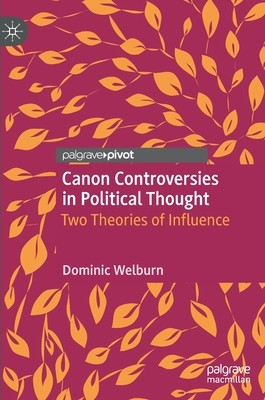
- We will send in 10–14 business days.
- Author: Dominic Welburn
- Publisher: PALGRAVE PIVOT
- ISBN-10: 3030413608
- ISBN-13: 9783030413606
- Format: 14.8 x 21 x 1 cm, hardcover
- Language: English
- SAVE -10% with code: EXTRA
Reviews
Description
This book explores the meaning of 'influence', which has played a central role in the formation of the canon, or tradition, of Western political thought. Via a critical overview of the relative fortunes of influence studies in the history of political thought, literary theory, and - at times - the history of art and poetry, it is possible to identify a dominant theory of the term. Nietzschean and 'emanational' in nature, thanks largely to the work of Harold Bloom, this particular theory views influence as mere power and represents a broadly accepted meaning in twentieth century thought. Canons or traditions of thought came to be institutions in themselves reflecting prevalent social and political inequalities. To be sure, a theory of influence as power came to be seen as complicit in arbitrary canon formation, across a range of disciplines. The book argues, ultimately, that a second theory of influence, imported from Mary Orr's work on intertextuality, affords a rival perspective and a more positive, intergenerational meaning of influence. Orr's 'braided rope' theory of influence allows for the development of a plurality of canons each capable of constructing new histories for a variety of epistemic communities. The existence of agonistic, rival canons presents pedagogical questions for all teachers of political theory, but one that can be potentially navigated by a new understanding of influence, in the Orrian tradition.
EXTRA 10 % discount with code: EXTRA
The promotion ends in 18d.05:06:01
The discount code is valid when purchasing from 10 €. Discounts do not stack.
- Author: Dominic Welburn
- Publisher: PALGRAVE PIVOT
- ISBN-10: 3030413608
- ISBN-13: 9783030413606
- Format: 14.8 x 21 x 1 cm, hardcover
- Language: English English
This book explores the meaning of 'influence', which has played a central role in the formation of the canon, or tradition, of Western political thought. Via a critical overview of the relative fortunes of influence studies in the history of political thought, literary theory, and - at times - the history of art and poetry, it is possible to identify a dominant theory of the term. Nietzschean and 'emanational' in nature, thanks largely to the work of Harold Bloom, this particular theory views influence as mere power and represents a broadly accepted meaning in twentieth century thought. Canons or traditions of thought came to be institutions in themselves reflecting prevalent social and political inequalities. To be sure, a theory of influence as power came to be seen as complicit in arbitrary canon formation, across a range of disciplines. The book argues, ultimately, that a second theory of influence, imported from Mary Orr's work on intertextuality, affords a rival perspective and a more positive, intergenerational meaning of influence. Orr's 'braided rope' theory of influence allows for the development of a plurality of canons each capable of constructing new histories for a variety of epistemic communities. The existence of agonistic, rival canons presents pedagogical questions for all teachers of political theory, but one that can be potentially navigated by a new understanding of influence, in the Orrian tradition.


Reviews